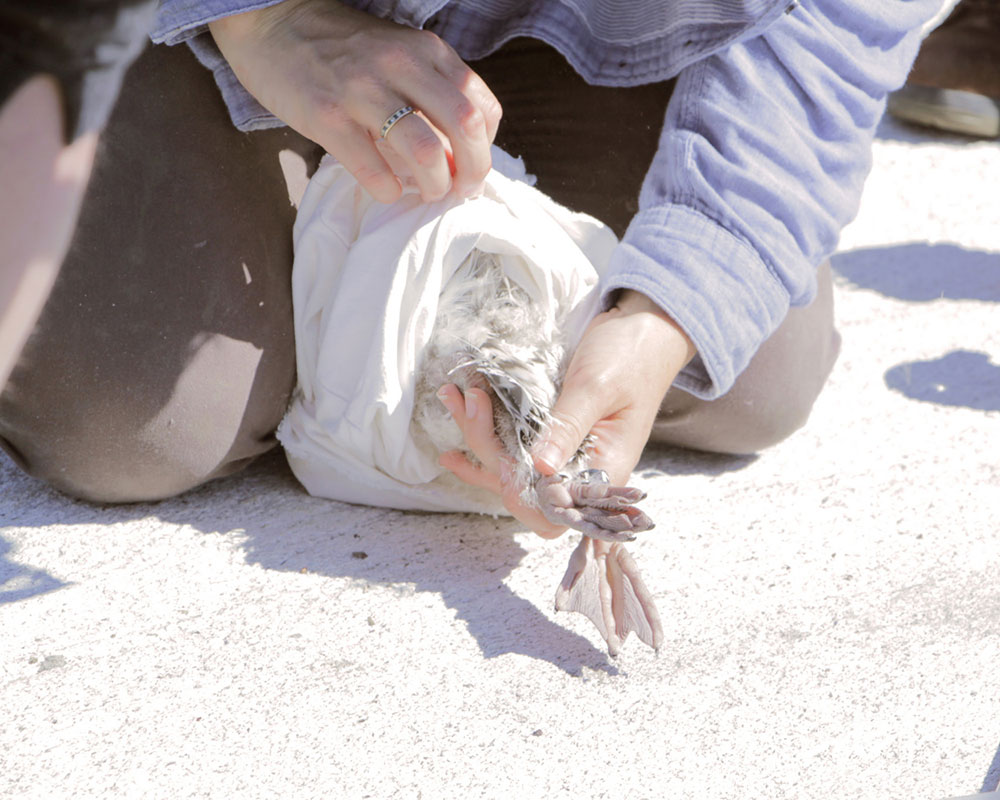Seagulls are caught and banded as part of the seagull banding project that Northern Essex Community College student participate in on Appledore Island, funded in part by the Verizon Foundation. (Courtesy photograph.)

Northern Essex Community College President Lane Glenn accepts $10,000 from the Verizon Foundation from Verizon representative Stephanie Lee for a field science program. (Courtesy photograph.)
Over the last two summers, about two dozen Northern Essex Community College students have trapped and banded Great Black-Backed and Herring gulls and collected blood samples at the Shoals Marine Laboratory on Appledore Island—helped in part with $10,000 each year from Verizon Foundation.
Under the direction of Natural Science Professor Sarah Courchesne, a trained veterinarian, students leave the classroom, enter nature and bring back data to biology and lab science students.
“We know that allowing students to experiment, question and practice science themselves is the best way to stimulate and maintain their interest in science not only as a subject, but as a verb,” said Courchesne. “Opportunities for students to participate in and perform their own research are limited at community colleges…on-campus research opportunities are slim…By expanding our campus outward to include work at the Shoals Marine Laboratory we bring our students into a community of world class scientists,” she added.
Courchesne became involved when Julie Ellis, the ecologist who founded the gull banding project, convinced Courchesne to co-teach a class on seabirds and later band gulls.
Last year Verizon’s grant paid for GPS technology to tag individual birds to track their movements. This year’s grant pay for the purchase of additional tags and a base station used to monitor the individual seagulls throughout the year.
Seven Northern Essex students participated in each of the two annual Appledore trips, but a total of 48 students of the fall and spring semesters also participates in the microbiological and DNA analysis of the summer samples collected in the field.
“In order to be prepared for jobs of the future, it’s essential for every student to have access to experiential learning, which is why the Verizon Foundation supports programs that engage students in science, technology, engineering and math education,” said Verizon Foundation spokesperson Stephanie Lee. “With about nine million available STEM jobs—and over four million available jobs in science and technology alone—students need access to education and resources that will prepare them for success in tomorrow’s high-tech world,” she continued.
Northern Essex offers an Associate of Science in Biology; an Associate of Applied Science in Laboratory Science; and an Associate of Art in Liberal Arts: Physical Science.

